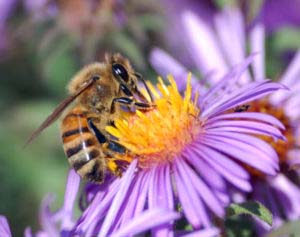“More than a billion pounds of pesticides are used annually in the United States, and the EPA has registered more than 18,000 different pesticides for use. Extensive scientific studies show widespread and pervasive pesticide contamination in groundwater, drinking water and wildlife habitats throughout the U. S.”
- Pesticide Action Network North America (PANNA)

June 9, 2011 Oakdale, California and Eagle Bend, Minnesota - Over the past several months, various media have headlined different answers to the serious decline of honey bees since the winter of 2006 in a phenomenon known as Colony Collapse Disorder, or CCD. Some proposed answers have included: “Nicotine-based pesticides such as imidacloprid and clothianidin are killing bee larva and foraging adults.” “Cell phone microwave radiation interferes with bee navigation.” “It's Nosema ceranae, the unicellular parasite.” “It's Varroa mites.” “It's the Israel acute paralysis virus.” “It's new viruses, fungi, climate change.”
Click here to subscribe and get instant access to read this report.
Click here to check your existing subscription status.
Existing members, login below:
© 1998 - 2025 by Linda Moulton Howe.
All Rights Reserved.

